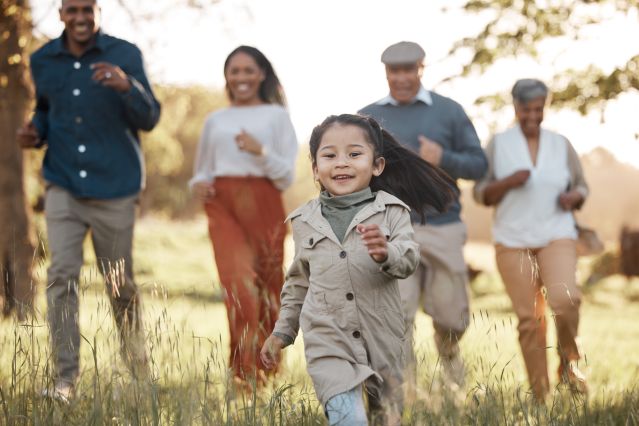Sport and Competition
The Joy of Sports Spreads the Message of Peace
How sport and competition help us celebrate peace.
Posted April 6, 2024 Reviewed by Lybi Ma
Key points
- In ancient times, people in conflict agreed to come together peacefully for the Olympics.
- Both athletes and spectators can benefit from sports.
- We can all learn to engage in activities to spread the joy of sports.

Sport and competition have helped bring people together around the world for centuries. From the first marathon at the Athens Modern Games on April 6, 1896, to children’s friendly park games, engaging in sports helps unite us in common goals: celebrating athletic ability and cheering for our favorite teams.
April 6th is the International Day of Sports for Development and Peace, proclaimed by the United Nations in 2013. The National Day Calendar noted, “The day celebrates how sports and physical activity contribute to education, human development, healthy lifestyles, and a peaceful world.”
On a global level, 206 National Olympic Committees, plus the Olympic Refugee Team come together every four years to showcase their amazing talents. Additionally, since ancient times, those in conflict agreed to allow athletes to participate in the games peacefully through the Olympic Truce. Around 13,400 athletes are expected to participate in the 2024 Paris Games. The benefit of participating in sports on a global level, both as a spectator and as an athlete, can help people take pride in fostering a peaceful, motivating, and exciting collective experience, while at the same time acknowledging shared values of respect, fairness, and cooperation (Clarke and colleagues, 2021).

Participating in sports has benefits on the local level, too. In addition to the physical benefits of playing sports, people can experience mental health benefits; people who prefer to be spectators can also experience benefits, like increased happiness (Lera‐López and colleagues, 2021). Participating in and watching sports can foster community, belonging, cooperation, and understanding of different perspectives.
Sports and exercise are activities in which we can engage across the lifespan as our understanding of peace and togetherness evolves:
- Sports help young children develop motor skills as they learn to play well with others (Harlow and colleagues, 2020).
- Lifestyle sports, like surfing and rock climbing, help adolescents experience joy, motivation, and social inclusion (Säfvenbom, and colleagues, 2023).
- Adaptive sports help adults feel enhanced emotional well-being and improved interpersonal relationships (Chen and colleagues, 2024).
- Exercise and sports can help older adults feel cheerful (Angela and Damayanti, 2023) as they enjoy enhanced life satisfaction (Kim and colleagues, 2020).

You can celebrate sports and peace in the following ways:
- Play sports
- Watch a motivating sports movie with friends and family, then discuss your favorite scenes, characters, and social impact from the movie.
- Listen to an audiobook by your favorite athlete as you take a walk
- Invite your neighbors to play a friendly board game
- Watch your local sports team with friends
- Learn about inclusive organizations in your community
References
Angela, C., & Damayanti, P. A. A. (2023). The effect of sports on psychological and social factors in the elderly community: A literature review. Jurnal Ilmiah Permas: Jurnal Ilmiah STIKES Kendal, 14(2), 903–912. https://doi.org/10.32583/pskm.v14i2.1688.
Chen, P., Yu, H., Lin, C. F., Guo, J., Elliott, J., Bleakney, A., & Jan, Y. K. (2024). Effect of adaptive sports on quality of life in individuals with disabilities who use wheelchairs: a mixed-methods systematic review. Disability and Rehabilitation: Assistive Technology, 1–17. https://doi.org/10.1080/17483107.2024.2313110.
Clarke, F., Jones, A., & Smith, L. (2021). Building peace through sports projects: A scoping review. Sustainability (Basel, Switzerland), 13(4), 2129-. https://doi.org/10.3390/su13042129.
Harlow, M., Wolman, L., & Fraser-Thomas, J. (2020). Should toddlers and preschoolers participate in organized sport? A scoping review of developmental outcomes associated with young children’s sport participation. International Review of Sport and Exercise Psychology, 13(1), 40–64. https://doi.org/10.1080/1750984X.2018.1550796.
Kim, A. C. H., Park, S. H., Kim, S., & Fontes-Comber, A. (2020). Psychological and social outcomes of sport participation for older adults: a systematic review. Ageing and Society, 40(7), 1529–1549. https://doi.org/10.1017/S0144686X19000175.
Lera‐López, F., Ollo‐López, A., & Sánchez‐Santos, J. M. (2021). Is Passive Sport Engagement Positively Associated with Happiness? Applied Psychology : Health and Well-Being, 13(1), 195–218. https://doi.org/10.1111/aphw.12227.
Säfvenbom, R., Strittmatter, A.-M., & Bernhardsen, G. P. (2023). Developmental outcomes for young people participating in informal and lifestyle sports: A scoping review of the literature, 2000–2020. Social Sciences (Basel), 12(5), 299-. https://doi.org/10.3390/socsci12050299.


